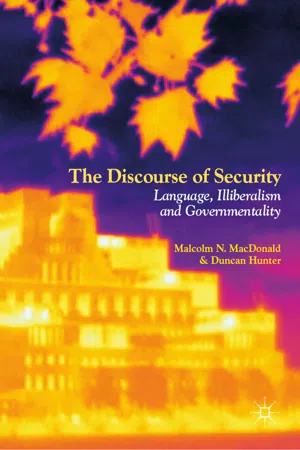By the end of the twentieth century, it had been over fifty years since most countries in Europe and North America had experienced a major attack by a foreign actor on their own soil. Although the USA and its allies had pursued lengthy incursions into other territories such as the Korean Peninsula (1950–1953) and Indochina (1955–1973), the populations of Europe and North America had experienced a lengthy period of relative peace since the end of the Second World War (1945). In the United States (US) , this period of relative tranquillity was brought to an abrupt halt on 11 September 2001, when members of an Islamist cell hijacked four commercial planes, crashing two of them into the Twin Towers of the World Trade Centre and one into the Pentagon. This resulted in the largest loss of life sustained on US soil by a foreign aggressor since the attack on Pearl Harbour in December 1941. The 9/11 attacks were subsequently followed by further attacks in Europe: on Cercanías Madrid in 2004 (11-M); and on the London Transport network in 2005 (7/7).
These events led to a range of policy responses from the governments concerned, and, immediately after the 9/11 and 7/7 attacks , provisions were made within the USA and the UK for the temporary suspension of a range of citizenship rights (Preston 2009). More radically, claims have been made that the terrorist response across Europe and North America has led to the intensification of a ‘state of emergency ’ which is being invoked to normalise the curtailment of civil liberties and suspension of habeas corpus in purportedly democratic societies (Agamben 1998, 2005). The second decade of the twenty-first century has seen an escalation of terrorist incidents across Europe and North America , being carried out by adherents to both right wing and Islamist radical groups; and the outbreak of the Syrian Civil War in 2011 has led to the largest forced migration of people since the Second World War. These events have resulted in an intensification of security and counter-terrorism policy by governments on both sides of the Atlantic. Over this period, a series of prominent confrontations also took place between the US , and Iran and North Korea , over claims that the latter two nations were developing the technologies to produce nuclear weapons . This was perceived as contravening the principles of the two international treaties relating to the control of nuclear weapons—the Comprehensive Test Ban Treaty (CTBT) and the Nuclear Proliferation Treaty (NPT)—and led to the passing of successive censorious resolutions by the United Nation Security Council (UNSC) .
Against this unfolding of world events, the principal aim of this book is to explore documentary evidence from a range of different contexts, in order to identify the ways in which the distinctive principles of the period are constituted through language and discourse . The post-9/11 period cannot be considered as homogenous . To conduct this exploration it is therefore necessary to explore the variations in discourse that take place from one historical moment to another, and from one institutional site to another. We thus seek to illuminate the realisation of security as a discursive phenomenon as it is subject to the generative categories of time and space. We intend to investigate whether changes take place across, and within distinctive periods; we also explore how security as a discursive enterprise operates across a variety of institutional contexts. We discover that there is an intensification of regulation under the conditions of (temporal) transformation as the period proceeds; also that that there is an intensification of the conditions of exception , in particular regarding an identifiable discourse of nuclear proliferation , under the conditions of (spatial) recontextualisation according to institutional location.
In order to carry out this wide-reaching and ambitious project we will propose theory and put forward methods which make an original contribution to the field of discourse studies . In what follows we set out the two axes of contemporary discourse studies that inform the analyses which we go on to present: first, our theorisation of post-9/11 security discourse that draws from critical discourse studies, linguistic and argumentation analysis , and poststructuralist theories of security ; and secondly, our development of a procedure for collection and analysis of documents , which combines the principles of critical discourse analysis (CDA) with those of corpus linguistics . In the next two sections, we describe our rationale for engaging with each of these axes, and conclude each section by setting out the objectives of the study relating to each.
Generating Theory Specific to Post-9/11 Security Discourse
To address the aim of the book set out above, our theorisation of post-9/11 discourse combines conventional theories of language and discourse with more recent critical theories in poststructuralist and political philosophy. While discourse analysis is usually the provenance of linguistics and applied linguistics , the study of security is usually the provenance of political science, international relations and security studies. In the first part of the book (Chapters 3, 4 and 6) we will assemble an interdisciplinary approach to the study of discourse in order to combine techniques of discourse analysis and critical theories of security drawn from poststructuralist philosophy, sociology, international relations and political science.
Language and Discourse
The response of the Bush administration to the 9/11 attacks gave rise to a wide range of different critical an...
